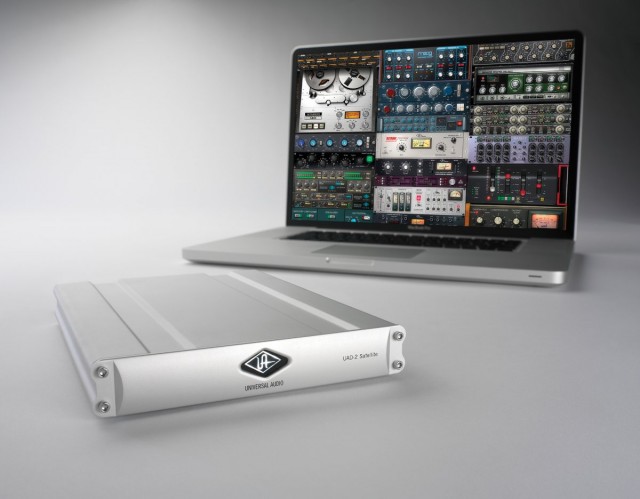It’s difficult to describe Universal Audio’s plug-ins until you’ve tried them. It’s a bit like having chocolate sauce at your disposal, sonically speaking. Whatever your higher-level brain may have to say, somewhere deep in your mammalian brain, you hear only … mmmmmm. Chocolate. It’s the word I get from UA users, and I’ll also have an interview with UA to post next week in which we get deep into the philosophy of sound, software design, and modeling, a conversation that transcends any one product. They’re not for everyone – they demand a price premium, to be sure, versus rival CPU-native options, and those with access to a studio might just use the real thing. But for enthusiasts, they can be a delight.
The trick is actually having access to UA’s extensive library of analog-modeling effects. Even as CPUs have marched forward in performance, dedicated DSP chips haven’t stood still. That makes these number-crunching brains a convenient platform for sound, as they are on UA’s effects. If you’re not using a desktop PC with a PCI slot, that means you need an external bus through which the hardware and your computer can connect. ExpressCard is a big boon, but especially for Mac users, it’s been an obstacle. A powerful MacBook Pro is now available for around a grand, but to get ExpressCard, you now need the wallet-busting, messenger bag-cramming 17″ model. It’s clearly a deal breaker.
The UAD-2 Satellite DUO and QUAD should greatly broaden the appeal of the platform, making it accessible to inexpensive, recent iMacs and MacBook Pros. I’m sure Universal Audio is smiling at the idea that you can take that $1000-2000 premium and spend it on UA instead of Apple.
By connecting via Firewire 400 or 800 on a “select” (recent) Intel Mac, the Satellite gives you access to models of vintage hardware UA has made with the likes of Roland, Neve, Moog, Studer, dbx, Solid State Logic, Lexicon, Manley, Empirical Labs, Trident, SPL, and EMT.
On the PC, I’d still recommend the inexpensive ExpressCard option to get started. It’s cheaper, and won’t have the strict compatibility requirements. On the Mac, though, with $500 plug-in vouchers or 50 plug-ins included, the US$899 starting point on these models doesn’t look bad at all. In fact, someone out there may be over at the Apple Store already pricing out one of the “low-end” iMacs or MacBook Pros, as they represent desktop-class performance from just a couple of years ago, particularly with what you can do now with USB2 and Firewire.
UA also recently added Pro Tools compatibility, so that combined with FireWire options means just about anyone can now consider their platform. If it’s something that interests you and you’ve got questions, fire away in comments and I’ll pass them on to the engineers at UA.
UAD-2 Satellite DUO Product Page (the entry-level model … more specs on compatibility forthcoming)
Darnit. Now I mentioned chocolate, so I have to go eat a chocolate.
